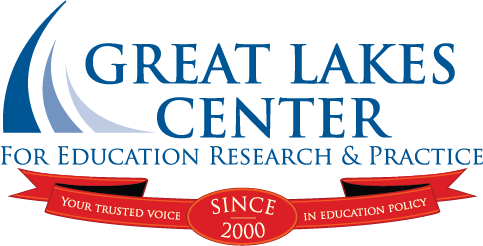
Think Twice Weekly Report
AUGUST 26, 2023 - SEPTEMBER 1, 2023
The Think Twice Weekly Report compiles public education-related policy reports, research and articles of interest to policymakers, educators and stakeholders. This list is not exhaustive but is meant to highlight recent reports that may be used to support or undermine the work of our subscribers in supporting public schools. We encourage you to take a moment to scan these reports and determine if they may be used by policy makers to assist or erode your mission.
 Policy Reports
Policy Reports
School Choice / Legal Issues
Source: Heritage Foundation
Date: 8/28/2023
Legal Challenges Will Not Stop School Choice
The term "school choice" refers to expanding parents' options for educating their children beyond traditional public schools; today, almost every state provides some form of school choice option. School choice opponents have turned to the courts to eliminate every school choice option or, at least, to exclude religious schools. These litigation strategies will likely fail. The Supreme Court has held that government providing educational assistance to parents, rather than directly to religious schools, does not violate the First Amendment's Establishment Clause. State constitutional provisions prohibiting aid to religious schools may still allow carefully crafted religious school choice options. And the Supreme Court has also been clear that categorically excluding religious schools violates the Free Exercise Clause.
School Choice
Source: Heritage Foundation
Date: 8/31/2023
Does School Choice Affect Private School Tuition?
Data analysis from the past decade reveals that tuition inflation was lower in states that adopted school choice policies (about 15 percent, on average) than in states without school choice (about 28 percent, on average). Moreover, among states that adopted school choice, inflation-adjusted tuition rates decreased after adoption of school choice. Contrary to the claims made by critics, states that adopted school choice had lower private-elementary-school tuition increases, and no discernable change in private-high-school tuition rates.
School Choice
Source: Ed Choice
Date: 8/29/2023
The Three Languages of School Choice
With The Three Languages of School Choice, author John Kristof offers a first step in strengthening the school choice coalition. The essay is divided into four parts. First, Kristof reviews some history of the school choice movement and gives a demonstration that the policy is traditionally nonpartisan. Second, he dives into the narrative policy framework (NPF) approach to policy studies, a compelling, non-reductionist explanation for why groups gravitate to the policy issues they do. Third, Kristof pairs NPF with the three-axes model of political communication, developed by economist Arnold Kling, which helps explain why groups sharing a policy position can still politically differ. Fourth, Kristof uses the 2021 Virginia gubernatorial race as a case study to illustrate how the Three Languages can explain why various people within the school choice movement react to the same K-12 education event in different ways.
School Choice
Source: School Choice Wisconsin
Date: 8/29/2023
The Cost-Effectiveness of Wisconsin's Private School Choice Programs
This report compares the cost-effectiveness of public schools and private schools in Wisconsin's private school choice programs (PSCP). Using conservative assumptions that rely solely on data from the Wisconsin Department of Public Instruction (DPI), it presents a Cost-Effective Index showing a significant advantage for PSCP schools.
Student Achievement / Diversity
Source: Fordham Institute
Date: 8/29/2023
Excellence Gaps by Race and Socioeconomic Status
"Excellence gaps" are the disparities in advanced academic performance that exist between student groups. These gaps have important implications for both academic equity and American economic competitiveness, as the most lucrative jobs often go to those who perform at the highest levels. Although considerable work has evaluated how and why these excellence gaps occur, what's not been examined closely is what excellence gaps look like for students of different races/ethnicities within the same socioeconomic group. This new report uses NAEP data on eighth graders over the last two decades to trace the performance of America's highest-achieving students by both race/ethnicity and socioeconomic status (SES).
 Reports Reviewed
Reports Reviewed
GLC seeks to ensure that policy briefs impacting education reform are based on sound, credible academic research. Below are reviews conducted with GLC support.
Think Again: Do Charter Schools Drain Resources From Traditional Public Schools?
Source: Thomas B. Fordham Institute
Reviewed by: Huriya Jabbar, University of Texas at Austin
The report references most of the relevant literature and fairly assesses the evidence. However, it makes claims and policy recommendations that are untested empirically and unwarranted based on the research. For example, it concludes that districts' higher expenditures in a charter environment are due to policies protecting traditional public schools from revenue fluctuations caused by charter competition. In doing so, it fails to consider other possible explanations, such as charters strategically enrolling relatively few students who are particularly costly to educate.
 What We're Reading
What We're Reading
Research and articles that we want to highlight for subscribers as potential resources:
Research on School Vouchers Suggests Concerns Ahead for Education Savings Accounts
By: Joshua Cowen, Brookings
Josh Cowen writes why ESAs are really no different than vouchers and why data on the latter warn us about the new breed.
'Knowledge is power': new app helps US teens read books banned in school
By: Olivia Empson, The Guardian
Digital Public Public Library fights back against rightwing censorship with resource that works through geo-targeting
Donate to Teachers Affected by Maui Wildfires
By: Hawaii State Teachers Association
The Hawaii State Teachers Association is collecting donations as well as sharing donation pages of teachers affected by the Maui wildfires.
AAP urges end to corporal punishment in schools
By: Kara Arundel, K-12 Dive
The American Academy of Pediatrics says that the practice of hitting children is used disproportionately and can lead to adverse impacts on students.
When is race-related curriculum OK under federal law?
By: Nazz Modan, K-12 Dive
Alluding to recent state policy restrictions, the Education Department clarified when race in curriculum and programming is permissible under federal law.
